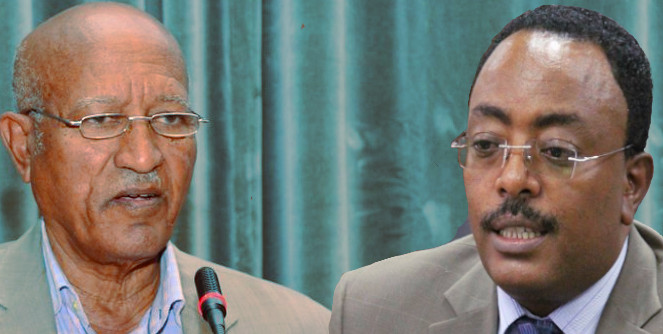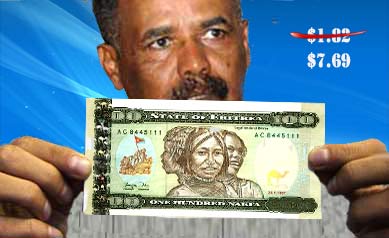UN Monitoring Group Provides Damning Report On Eritrean Regime
 Over the last six months, a UN-authorized Somalia Eritrea Monitoring group has been visiting a number of African countries to investigate and gather evidence about the Eritrean regime’s role in funding, arming, and training armed groups in defiance of Security Council resolution 1907. According to our sources, the Monitoring Group has gathered damning evidence which it has presented to the Security Council.
Over the last six months, a UN-authorized Somalia Eritrea Monitoring group has been visiting a number of African countries to investigate and gather evidence about the Eritrean regime’s role in funding, arming, and training armed groups in defiance of Security Council resolution 1907. According to our sources, the Monitoring Group has gathered damning evidence which it has presented to the Security Council.
Last fall, the group visited Asmara and met with many officials of the government of Eritrea and “didn’t find any cooperation from the government,” according to a source who is from a security council member country. The typical approach the Eritrean regime uses to forestall appointments is to give a long list of questions and demand that they are answered before a meeting can be scheduled.
Last month, the monitoring group delivered its six-month report to the security council. It seems evidence collected from Somalia, Djibouti, Somaliland, Kenya, Sudan and Uganda indicate that Eritrea, “instead of complying with resolution 1907, it has in fact engaged in more flagrant violations,” our source said.
The monitoring group has been able to gather the evidence because many of the Somalis that the Eritrean regime was grooming as its proxies have turned against it and are co-operating with the Monitoring Group. According to our source, the Monitoring Group’s report detail the regime’s involvement in Somalia as being primarily a proxy for the regime of the now-deposed Hosni Mubarek who saw his role as minimizing Ethiopia’s influence in Somalia.
The sanctions committee, which is scheduled to meet in the coming summer is likely to impose further sanctions and include more names of Eritrean officials in the travel ban list. So far, Yemane Gebreab is the only notable official in the list, (and he has been violating the ban).
Background
On March 20, 2010, the Monitoring group provided a comprehensive report which accused Eritrea of flagrantly violating the arms embargo against Somalia and funding, training and arming Somali insurgent groups including Al Shabab, Ras Kamboni forces and Hizbel Islam. The Eritrean regime funded the insurgents at the rate of $40,000-$60,0000 a month, according to the report, and had training facilities in Asab and the Tessenei area for them. Eritrea’s motive, concluded the report, “can be understood only in terms of Asmara’s broader regional policies, most importantly its continuing dispute with Ethiopia.”
The Eritrean regime also hosted Ethiopian opposition groups who were given TV airtime, military training and funding, but since the 1907 UN resolution explicitly called on the Eritrean regime to stop such activities, its media has taken a low-key approach to its support of Ethiopian rebels.
While the Eritrean regime’s official policy is that it does not support “one party against another regarding the Somali issue,” the state media has accused the Somali government instituted following the Djibouti Agreement as a lackey of Ethiopia and attempted to describe the Asmara-hosted Alliance for the Reliberation of Somalia (ARS) as the genuinely representative Somali movement.
According to the report of the Monitoring group, the Eritrean regime, represented by a “Colonel Teame” micromanaged the ARS to the extent of selecting its officials. The illusive “Colonel Teame” has many nicknames and was, reputedly, part of the bodyguard team assigned to Ethiopian Prime Minister Meles Zenawi when the Eritrean and Ethiopian governments had intimate relationship in the early 1990s.




Awate Forum